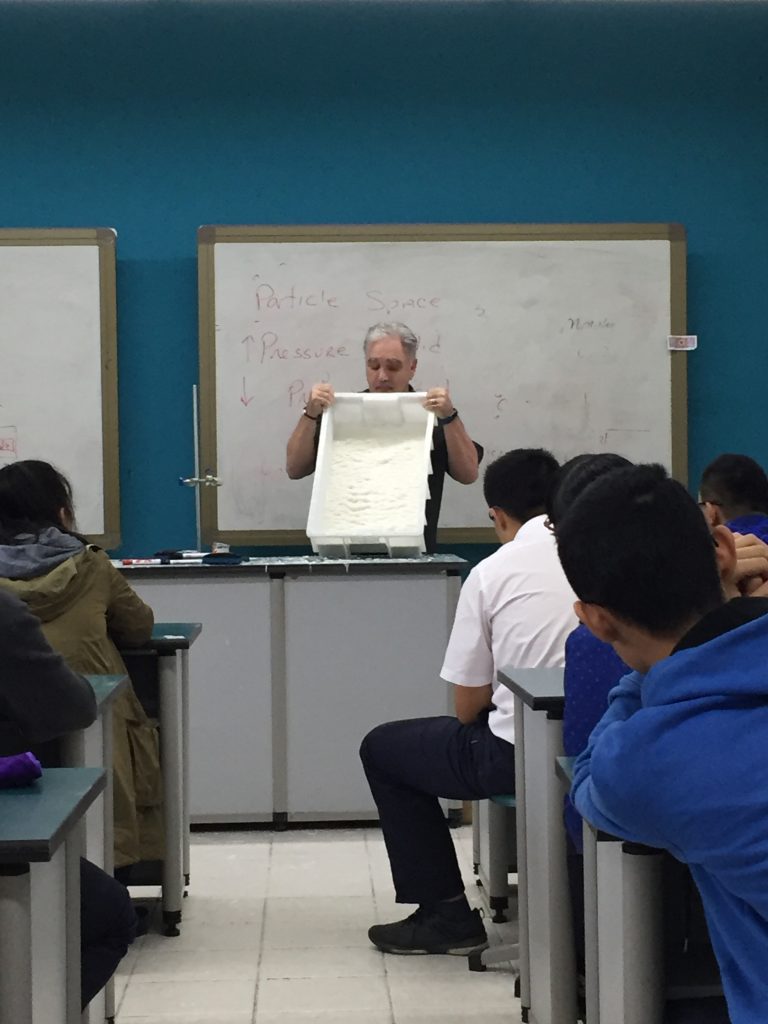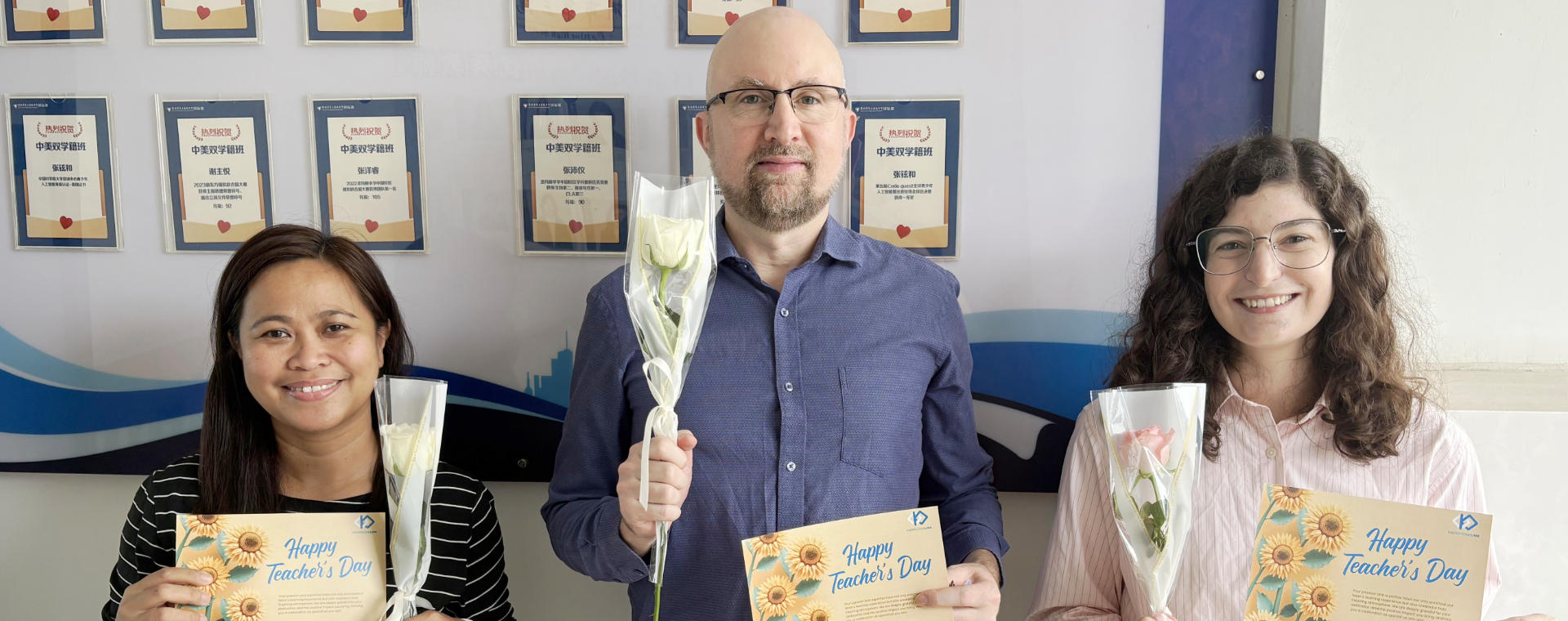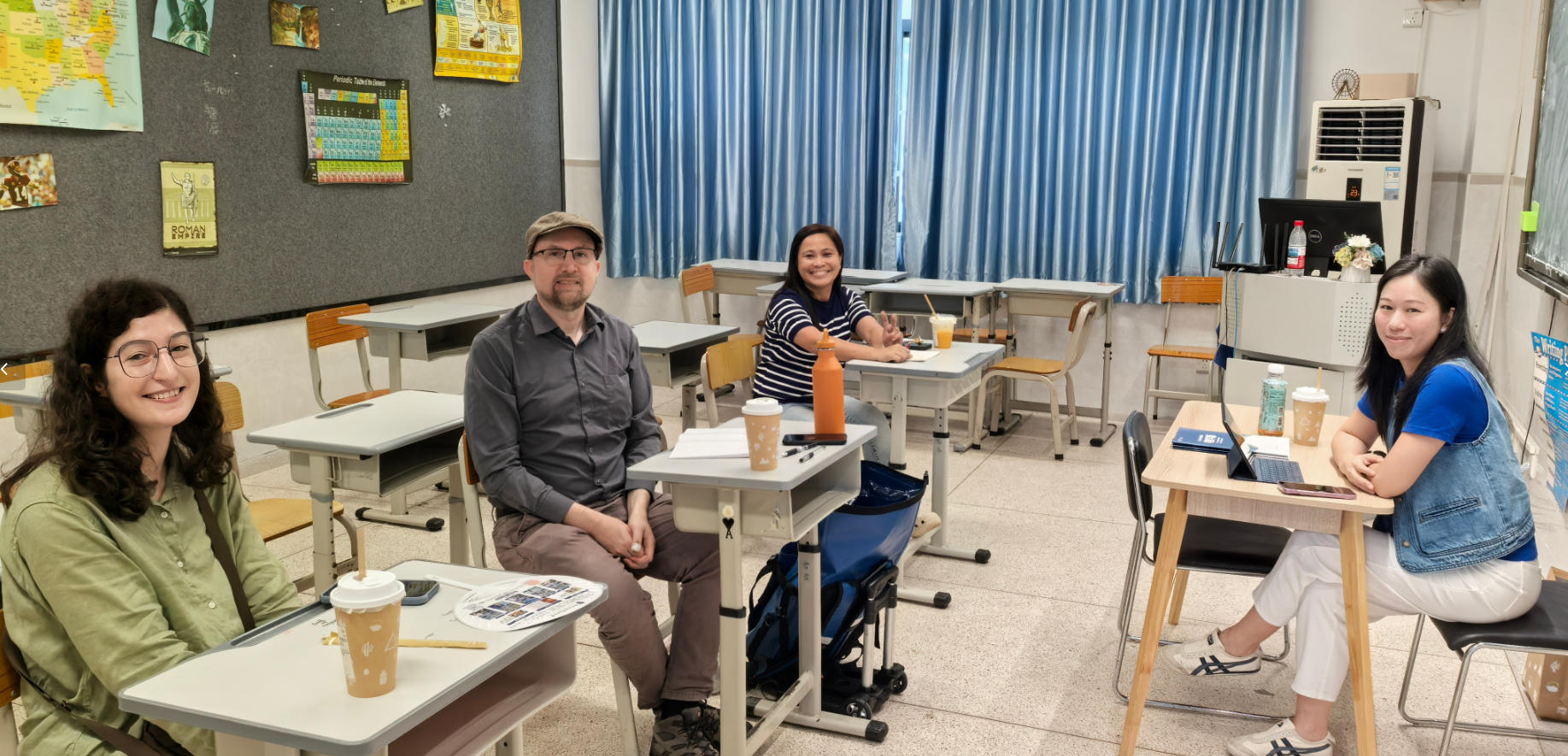Lost in Translation
David Langenmayr is the Academic Dean for the John Carroll Bashu Ivy Program in Chongqing. 2016 is his first year working at the freshly opened school. David has spent 4 months in Chongqing and has used his experience in a foreign environment to relate to the students he guides each day. He shared his story with us.
Lost in Translation
“The hardest part of living in a different country is the language barrier. Because you know you have to learn the language in order to survive.” – Betina Johnson
As I struggle to make sense of a new school, community, and culture, I find that much of the communication I am involved in is not what it seems. At a restaurant, I order the chicken, and after much cognitive stress, I believe that I have communicated my order to the waiter proficiently. Unfortunately, I end up eating the bullfrog that is delivered to my table. These types of encounters are repeated throughout my day when involved in meetings, classes, or even just joking with my new colleagues. I find myself at the end of the day cognitively worn out by too much working memory loading due to translating the language and culture differences of everyday encounters. I spend a lot of time lost in translation. It allows me an informed perspective into the academic lives of our English language emersion students. Our academic team is working to give our students the most effective support we can do in the area of ESL to lessen their daily struggle.
My Two Assumptions
From my perspective I posit two assumptions (1) that vocabulary is an integral part of language acquisition and (2) contextual comprehension is essential to in both interpersonal communication as well as academic understanding.
According to Sprenger (2013), one of the best ways to increase student achievement on standardized test scores in a standards-based curriculum is the continued use of academic vocabulary to improve student Cognitive Academic Language Proficiencies (CALP). So, we have to somehow embed more academic vocabulary into our student’s daily lives along with increasing cultural and contextual understanding. In discussing the value of storytelling Friday (2014) states that many students find inspiration from fictional readings. Incorporating reading is also essential for building ESL students interpersonal communication. So, lost in translation is part vocabulary, part contextual, and part cultural. Something we’ve been thinking about at John Carroll-Bashu Ivy Program.

John Carroll-Bashu Ivy Program Initiatives
With input from our partner school Bashu Ivy and our team here in Chongqing we are developing several exciting initiatives to counteract the lost in translation effect. First, we are working with our Chinese English language coordinator and teachers to create materials and lessons that incorporate our content area academic language. A week or two prior to teaching we are providing unit and lesson plans with vocabulary. This will not only get our students more exposure to this vocabulary, but it is also timely, so there the Chinese class use of this vocabulary will coincide with the American class use of the vocabulary. Secondly, we are looking into developing a reading comprehension program around books authored by Chinese authors written in English. We plan to start out with this model and move toward the traditional American text reading lists. The idea is to start with books that are culturally attuned to the Chinese student, yet written for a western audience and grow the reading list toward more westernized books. Each book will have a comprehension quiz for the student to complete and will be incentivized. Lillian from the Bashu Ivy team and William our American Reading for Writing teacher are collaborating on this initiative.
I hope that our collaboration and ideas will benefit our students, so they are not continually feeling the cognitive stress of being lost in translation. I am proud of the work and collaboration of our teams. Check back with the KL news to keep track of our progress.
References
Friday, M. J. (2014). How storytelling inspires children to learn English.
Sprenger, M. (2013). Teaching the critical vocabulary of the common core. Alexandria, VA.: ASCD.








关于我们
了解更多
总部地址
101 Federal Street, Suite 1900,
Boston, MA 02110
1-781-996-0425
info@kleducation.org
订阅我们